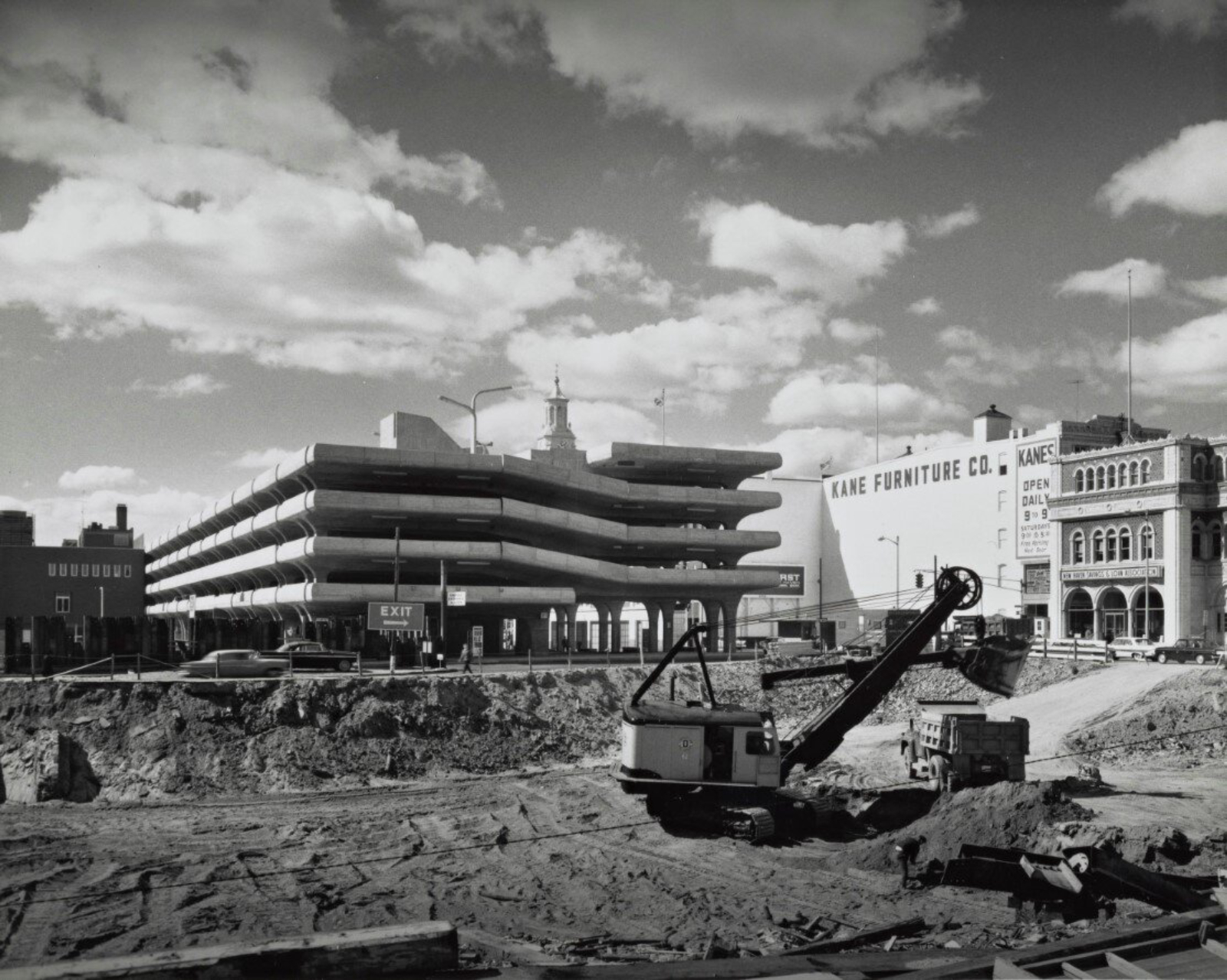The call for abstracts has closed. Those who submitted will be notified in late February of the review committee's decision.
Call for Abstracts
Join us in New Haven, Connecticut, from June 21-24, 2023, and experience one of the country’s most densely woven collections of mid-century art, design, and architecture. As we take in this cultural epicenter, we will consider the triumphs and complexities surrounding the design and building of the Modern city and the impacts on our collective communities.
New Haven, as a base for the event, exemplifies the urban and suburban tensions of the period with its top-down governmental and university planning methods, as well as the socio-political issues of the era such as war, racism, inequity, and protest, among others, that influenced the physical design of cities and today are being constantly revealed. At the center of New Haven, Yale University plays a key role in the building of this modern city. It is one of the most important and influential American schools of architecture in the Modern era and it has one of the most important collections of Modern architecture and design on any American college or university campus. But perhaps Yale’s biggest impact has been teaching generations what it means to design and build vibrant communities. The National Symposium will also consider the state of Connecticut, its contributions and impacts nationally, as well as local and regional designers who played significant roles in the state’s built heritage.
Thematic Goals
- Promote a broader understanding of the triumphs and complexities in designing and building Modern American cities
- Celebrate the preservation of New Haven’s and Connecticut’s vast collection of Modern sites
- Consider the impacts of urban renewal on communities, their built fabric, and the future
- Explore the roles of art, landscape, architecture, and education in the development of Modern cities
Researchers, practitioners, and enthusiasts involved in the process of preservation, conservation, renovation or transformation of buildings, sites and neighborhoods of the Modern Movement are invited to submit abstracts of papers or full sessions that align with the stated thematic goals. Topics outside of the suggested areas will also be considered. We welcome submissions that take a holistic approach to modern resources (not just the buildings), and consider the social context, technical merits, aesthetics, and settings when evaluating them. Abstracts should include how the subject contributes to the broader discussion of diversity, equity, inclusion, and justice, either generally or in relation to a specific field of study.
The 2023 National Symposium will feature many luminaries of the 20th century who taught and built in New Haven such as Paul Rudolph, Louis Kahn, Eero Saarinen, Anni and Josef Albers, Marcel Breuer, Kevin Roche, and Cesar Pelli, in addition to regional designers such as Edward Cherry, King-lui Wu, Douglas Orr, Earl Carlin and Vincent Amore.
Topics ranging from local efforts to counteract redlining, urban renewal, industrial shifts, infrastructure development, automotive growth, public housing, cultural district insertions, public space, zoning regulations, suburban sprawl, and more, will engage Symposium participants in issues still with us today. Both the small-scale innovative details of the Modern house, to the large-scale politically motivated visions of planners such as Ed Logue and Robert Moses, will be critically addressed along with an emphasis on individual building structures and their designs in the urban setting.
Session Topics to Consider:
- The Univer-city / Town and gown
- Urban renewal policy and planning
- Public space and the city
- Housing and the city
- Arts and the city
- Car infrastructures
- The Modernist residential experiment
- Reaction to the city
- Suburban development and the Modern house
- Women architects/designers
- Underrepresented architects/designers
- Teaching Modernism in the U.S.
- Stewardship of Yale’s Modern resources
Submission Guidelines
Abstracts are due by Thursday January 12, 2023 at 11:59 pm and should include the following required information:
- Title (65 characters max)
- Abstract (400 words max)
- Learning objectives (100 words max)
- Author’s name, title, affiliation, email, phone, and address
- Pronouns
- Author’s biography (200 words max)
- Headshot (jpg or png)
All submissions must be in English and should take no more than 20 minutes to present. If submitting an entire session, it should include at least two speakers and be no longer than 75 minutes long (including time for discussion).
Participants will be notified in mid-February, and a first draft will be expected in March.
All speakers are expected to appear in person to present their talks. Speakers must also provide a pre-recorded video of their talk, to be used in the event of a virtual symposium, and to be posted for later viewing by Symposium participants and virtual attendees.
Speakers will receive a reduced registration rate of $175 for the Symposium (standard registration is $345). Students can register at the reduced rate of $50.
